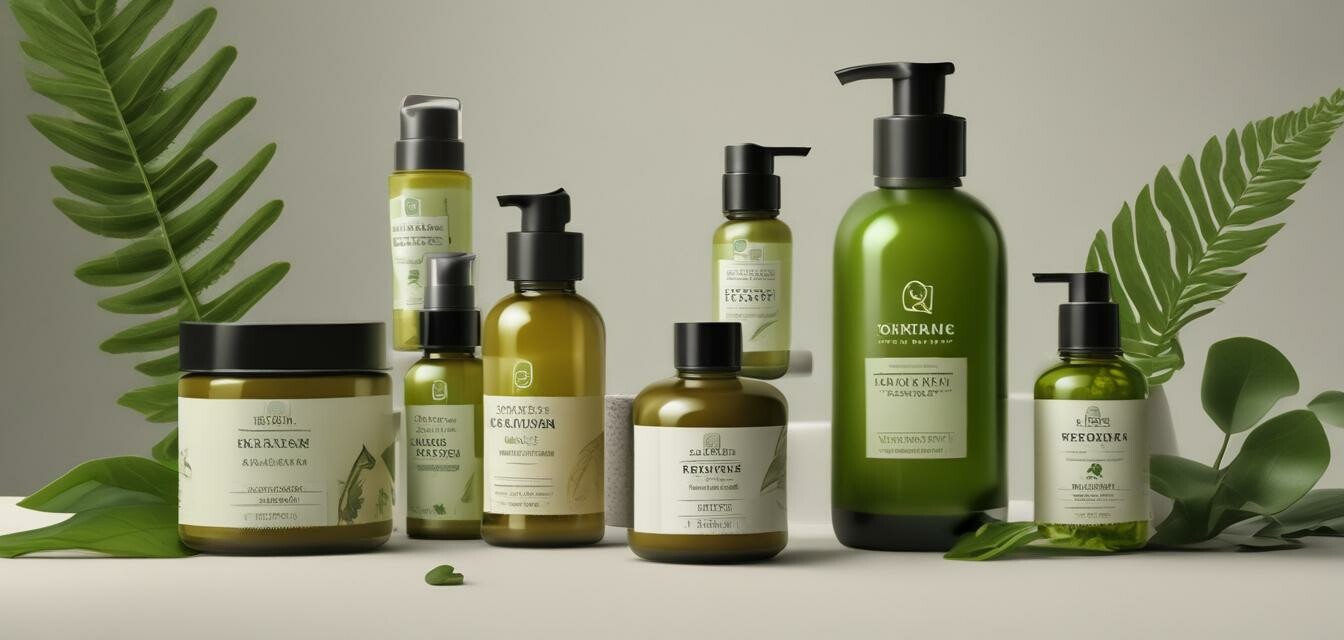
How to Spot Genuine Organic Skincare Products
Key Takeaways
- Understand key certifications and labels that indicate organic authenticity.
- Learn to read ingredient lists for harmful additives and synthetic materials.
- Recognize the importance of transparent sourcing and brand ethics.
- Be aware of marketing tactics that mislead consumers about product quality.
- Explore the latest trends in organic skincare for better choices.
In today's world, where the beauty industry is overflowing with a plethora of skincare options, it's essential to know how to distinguish between genuine organic skincare products and those that merely claim to be organic. This guide provides you with the necessary tools to navigate through labels and marketing claims, ensuring you make informed choices for your skincare regimen.
What Makes a Skincare Product Organic?
Organic skincare products are those made from natural ingredients that are grown and processed without the use of synthetic fertilizers, pesticides, or genetically modified organisms (GMOs). But how can you be certain that a product is genuinely organic? Here are some critical aspects to evaluate:
- Look for certified organic labels
- Examine the ingredient list
- Research the brand's sourcing practices
Key Certifications to Look For
Not all labels are created equal. To help you spot authentic organic skincare, here are some trustworthy certifications to seek:
| Certification | Description |
|---|---|
| USDA Organic | Indicates that the product contains at least 95% organic ingredients. |
| EcoCert | A European certification that ensures strict environmental standards. |
| Soil Association | A UK-based certification focusing on organic agriculture and fair trade. |
| Non-GMO Project Verified | Ensures that the product does not contain genetically modified organisms. |
| Leaping Bunny | Indicates that the brand is cruelty-free and does not test on animals. |
Reading Ingredient Lists
To further spot genuine organic skincare products, closely examine the ingredient list. Here’s what to look for:
Tips for Reading Labels
- Prioritize products with simple, recognizable ingredients.
- Avoid items with long lists of chemicals or synthetic additives.
- Look for cold-pressed oils and organic extracts.
- Be cautious of misleading names—terms like "natural" may not mean organic.
- Check for possible allergens or harmful substances, such as parabens and sulfates.
Understanding Brand Ethics
Genuine organic brands often prioritize ethics and sustainability in their sourcing and production methods. Investigate the company you are purchasing from:
- Do they provide transparency about their ingredients and sourcing?
- Are they involved in ethical practices and fair trade?
- What is their environmental impact?
Beware of Misleading Marketing Tactics
Many brands employ clever marketing strategies that can mislead consumers. Here are some common tactics to watch out for:
- Using vague terms like “natural” or “nature-inspired” without substantial evidence.
- Packaging that implies organic attributes through imagery rather than actual certification.
- Limited ingredient lists that exclude potentially harmful components while emphasizing one or two good ingredients.
Stay Updated with the Latest Trends
The organic skincare landscape is continually evolving. Being informed about the latest trends can help you make better choices. For the newest in organic skincare, explore our blog section which covers:
- Innovative ingredients making waves in the industry.
- Eco-friendly packaging solutions hitting the shelves.
- Popular techniques for achieving radiant skin while caring for the planet.
Pros
- Promotes skin health with natural ingredients.
- Environmentally friendly practices.
- Supports ethical brands and fair trade.
- Helps in reducing exposure to harmful chemicals.
Cons
- May be more expensive than conventional products.
- Limited availability in some areas.
- Not all brands genuinely adhere to organic practices.
Final Thoughts
Understanding how to spot genuine organic skincare products is essential amid a saturated market. By being aware of certifications, reading ingredient lists carefully, evaluating brand ethics, and staying informed about trends, you’re more likely to make the best choices for your skincare needs.
For more insights on skincare routines, visit our Skincare Routine Tips section or explore our Exfoliators & Masks category!


